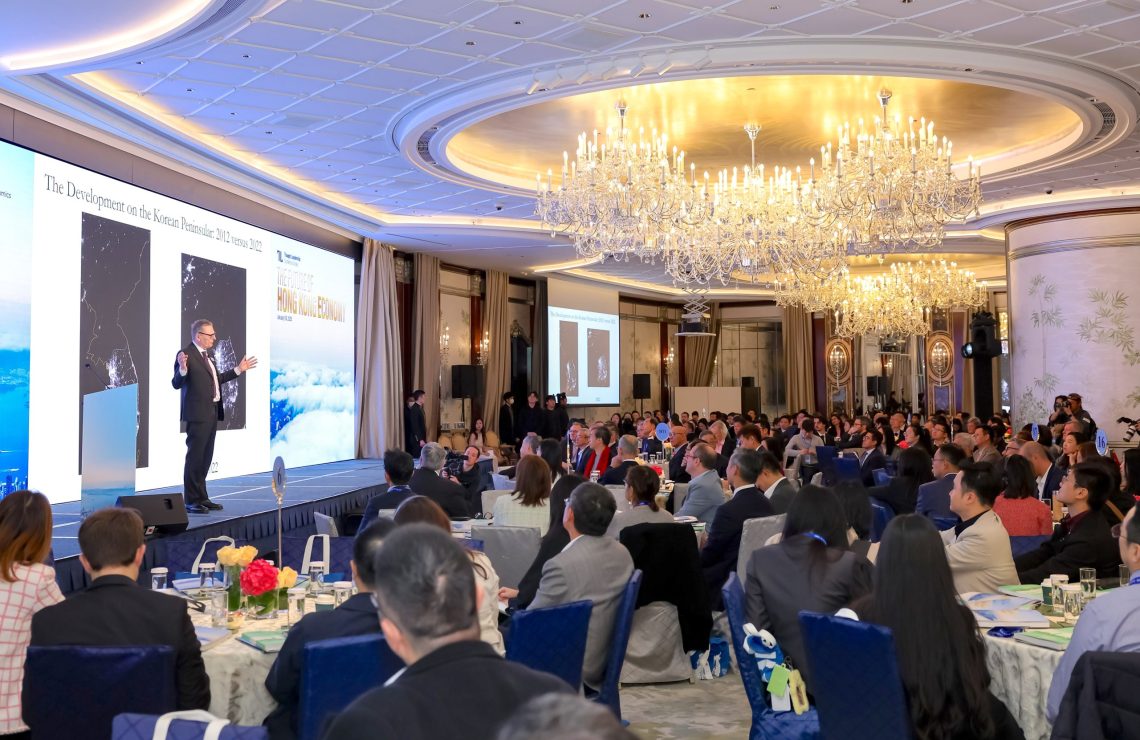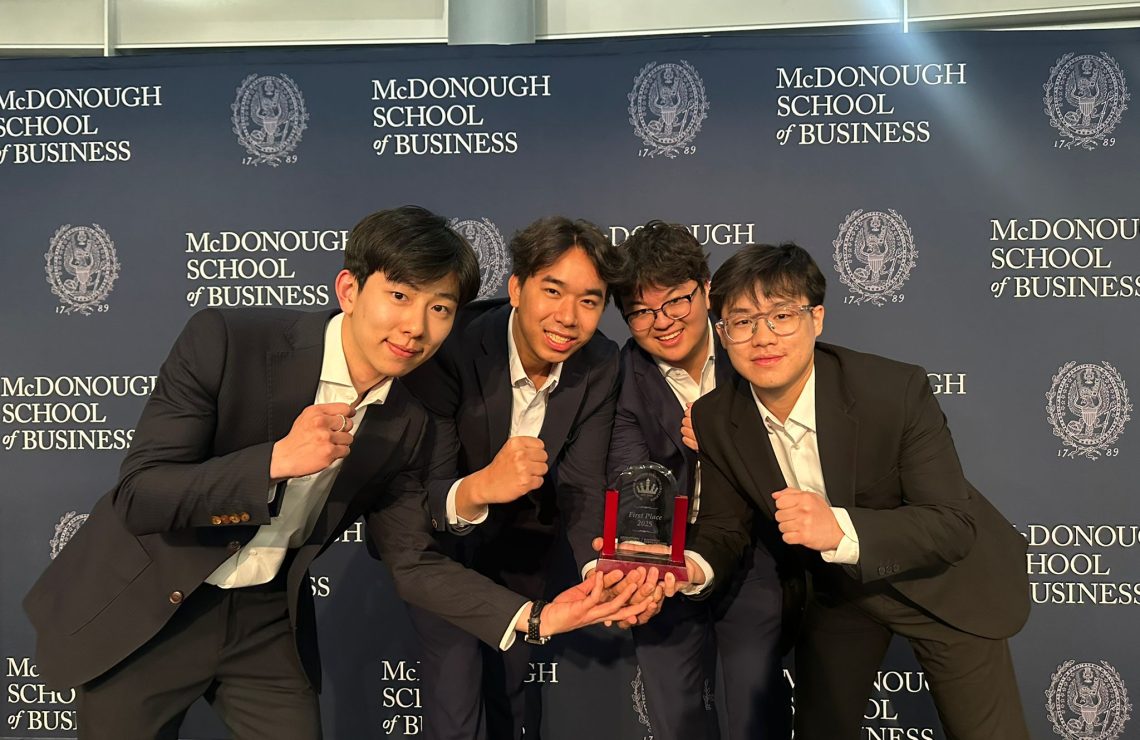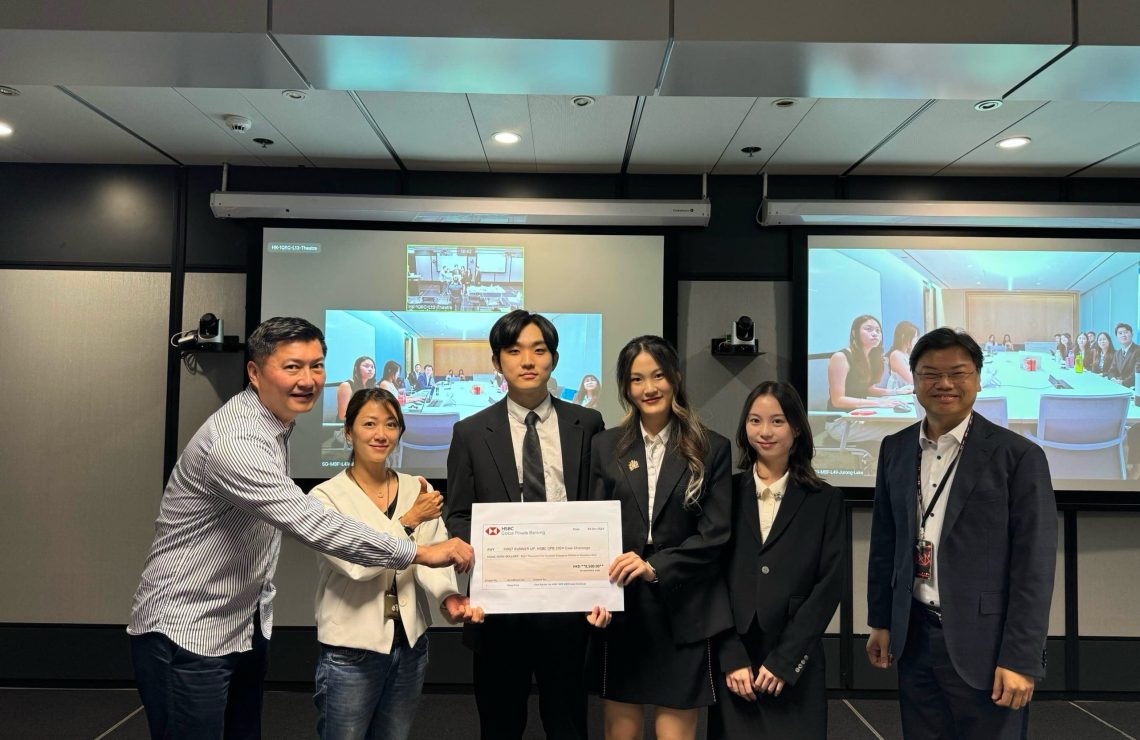
The Future of Hong Kong Economy Conference 2025 Explores Sustainable Growth in Hong Kong’s Economic Development
“The Future of Hong Kong Economy Conference 2025”, organised by HKU Business School and co-organised by the Hong Kong Institute of Economics and Business Strategy, concluded successfully on 16 January. The conference gathered esteemed scholars, policymakers and industry leaders to engage in dynamic discussions and examine strategic pathways for achieving sustainable economic development in Hong Kong. This year, the conference invited Professor James A. ROBINSON, Awardee of the 2024 Nobel Prize in Economics, as the keynote speaker.
Professor James A. ROBINSON delivered a keynote speech titled “Institutions and Prosperity in Hong Kong”. It highlighted that the divergence in prosperity among countries is fundamentally rooted in the nature of their political and economic institutions, where inclusive institutions generate incentives and opportunities whereas extractive institutions do the opposite. Hong Kong stands as a high example of inclusive institutions and is one of the great economic success stories in history. To maintain this amazing society, including social mobility and entrepreneurship, navigating the complex interplay between economic inclusivity and political structures will be essential for shaping the region’s future trajectory.
Professor Hongbin CAI, Dean and Chair of Economics of HKU Business School, expressed, “Despite the rapid transformations undergone by Hong Kong’s economy in recent years, I am confident that the Lion Rock spirit will provide our city with the resilience needed to regain strong economic performance. More importantly, we must address ‘idea deficit’; we cannot expect to return to our glorious past without fostering innovation and generating new ideas. This conference presents a valuable opportunity to gather distinguished speakers for insightful discussions on sustainable growth.”
Four panel discussions were also conducted during the conference. In the first session titled “Challenges and Opportunities: Hong Kong’s Economy and Beyond”, speakers highlighted that Hong Kong needs to be flexible and demonstrate expediency on its path to implementing institutional changes amid geopolitical tensions and protectionism. Additionally, it is crucial to examine the role of government and regulatory oversight in rethinking the city’s economic development.
In the second session titled “Exploring New Frontiers: Uncovering Economic Potential for Hong Kong’s Transformation”, Ms. Alpha LAU, Director-General of Investment Promotion of Invest Hong Kong, underscored that under “One Country, Two Systems”, Hong Kong continues to serve as a springboard for foreign businesses owing to the city’s unique advantages, robust tax system, strategic access to China and rapid growth in Asia. Regarding new engines for Hong Kong’s economic growth, speakers discussed how Hong Kong can adopt a new mindset and leverage emerging opportunities across different industries, such as art & culture, green finance and supply chain management, to enhance the city’s competitiveness beyond traditional economic pillars.
Professor Heiwai TANG, Associate Dean (External Relations) of HKU Business School, Victor and William Fung Professor in Economics & Director of Asia Global Institute, shared that, “We need institutional innovation and a shift in mindset during this transitional period in Hong Kong. Innovation extends beyond technology; there is a pressing need for institutional reforms and a holistic view of the ecosystem to identify missing bottlenecks. This will enable us to create new opportunities that benefit both the local and regional economy.”
At noon, the authors of the “Hong Kong Economic Policy Green Paper 2025” introduced their research findings and shared their insights on the city’s economic and financial development.
In the afternoon session titled “Anchoring Sustainable Investment in an Unsustainable World”, speakers noted that despite the additional cost and regulatory requirements involved, many companies are seeing significant business opportunities in their sustainability and decarbonization efforts. To develop Hong Kong as a future green finance centre, the government should enhance support for the corporate sector and facilitate the development of necessary infrastructure. In the last session, titled “Sustainable Growth in Hong Kong: Enhancing Livelihoods for a Resilient Economy”, speakers pointed out that promoting upward social mobility and enhancing social support are the keys to improving the happiness levels of Hong Kong citizens. The government should also allocate more social resources and provide diverse opportunities and incentives to foster meaningful engagement within society.
HKU Business School has been committed to analysing Hong Kong’s economic landscape and policy issues through professional knowledge and distinguished research. Collaborating with other renowned scholars, our faculty members have recently published the “Hong Kong Economic Policy Green Paper 2025” and held the 4th Conference on The Future Hong Kong Economy, bringing together leaders from various sectors of society to contribute ideas and strategies for the long-term prosperity of the city.
Photo Caption

Professor James A. ROBINSON, Awardee of the 2024 Nobel Prize in Economics, delivers a keynote speech.

Professor Hongbin CAI, Dean and Chair of Economics of HKU Business School

Alpha LAU, Director-General of Investment Promotion of Invest Hong Kong

Professor Heiwai TANG, Associate Dean (External Relations) of HKU Business School, Victor and William Fung Professor in Economics & Director of Asia Global Institute

(From left) Professor Hongbin CAI, Dean and Chair of Economics of HKU Business School; Professor Edward K. Y. CHEN, CBE, GBS, JP, Former Member of the Executive Council of Hong Kong, Professor Zhiwu CHEN, Chair Professor of Finance of The University of Hong Kong, and Professor James A. ROBINSON, Awardee of the 2024 Nobel Prize in Economics, engaged in a panel discussion.

(From left) Professor Heiwai TANG, Associate Dean (External Relations) of HKU Business School, Victor and William Fung Professor in Economics & Director of Asia Global Institute, Daniel FUNG, SBS, SC, KC, FCIArb, JP, Vice-Chairman of Financial Services Development Council, Ms. Wendy GAN Kim-see, Deputy Chief Executive Officer (District Development) of West Kowloon Cultural District Authority & Chief Executive Officer of WestK Enterprise Limited, Ms. Alpha LAU, Director-General of Investment Promotion of Invest Hong Kong, and Hon. Sunny TAN, Chairman of Hong Kong Productivity Council & Legislative Council Member, engaged in a panel discussion.

(from left) Alice HUI, Head of Development and Alumni of HKU Business School, Professor Chen LIN, Chair of Finance, Stelux Professor in Finance, Associate Vice-President of The University of Hong Kong, Associate Dean (Research and Knowledge Exchange) of HKU Business School, Professor Heiwai TANG, Associate Dean (External Relations) of HKU Business School, Victor and William Fung Professor in Economics & Director of Asia Global Institute, and Professor Yang LIU, Associate Professor of Finance of HKU Business School engaged in a fireside chat.

(From left) Professor Guojun HE, Professor in Economics, Management & Strategy of HKU Business School & Director of the HKU Jockey Club Enterprise Sustainability Global Research Institute, Ted CHAN, Head of Hong Kong, Senior Partner and Managing Director of Boston Consulting Group, Dr. Chaode MA, Assistant Resident Representative of UNDP China, and Mr. Ken WONG, Partner and Head of Asia Pacific, Infrastructure of EQT Partners, engaged in a panel discussion.

(From left) Professor Patrick NIP, GBS, JP, Adjunct Professor, Department of Politics and Public Administration of The University of Hong Kong, Wendy HONG Wen, Incumbent Member of the 7th Legislative Council of the HKSAR, Professor Terry LUM, Professor / Henry G. Leong Professor in Social Work and Social Administration of The University of Hong Kong, and Mr. Paul McCOMB, Executive Director, The British Chamber of Commerce in Hong Kong, engaged in a panel discussion.







